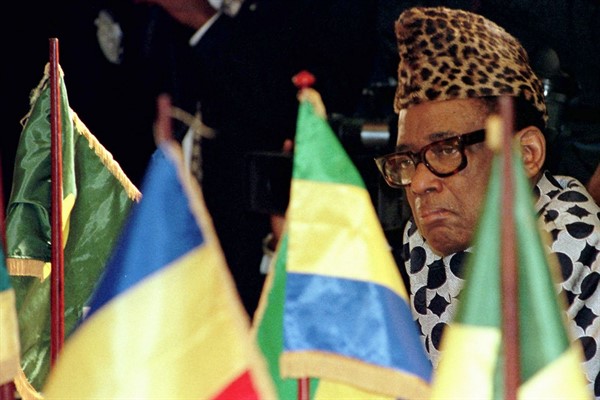In 1997, after his longtime Western backers, Belgium and the United States, had abandoned him, Mobutu Sese Seko, the ruler of the country then known as Zaire, turned to mercenaries from Serbia and Ukraine in a desperate bid to beat back an accelerating insurgency.
In the middle of that war, I flew to Kisangani—the famous, centrally located river-port city that is a gateway to the vast country’s west—to watch the mercenaries drill Zairian troops and take up positions to repel an impending attack on the town. The mercenaries looked fearsome and seemed to have everything they needed to defend the city, from mortars and artillery to attack helicopters. The Zairian general in charge of the operation sounded sure of prevailing. “This is where their offensive ends,” he said of the Rwandan-backed rebels.
A day or two later, I flew back to Zaire’s capital, Kinshasa, drawn by urgent news there. As it happened, that was the day the rebels chose to attack Kisangani, and they made quick work of the government’s defense. “Around 7 P.M. all of the mercenaries disappeared from the hotel they were staying in, and next thing we knew all of the airplanes at the airport were in flames,” said a United Nations official I quoted in my report in the next day’s New York Times. “There have been bombs going off and lots of gunfire,” he added. “According to our information, the city is being looted right now.” A Zairian official I quoted in the same piece told me, “All of the generals have left Kisangani, by boat, by ground, by whatever means. Who knows what will happen here tomorrow?”

